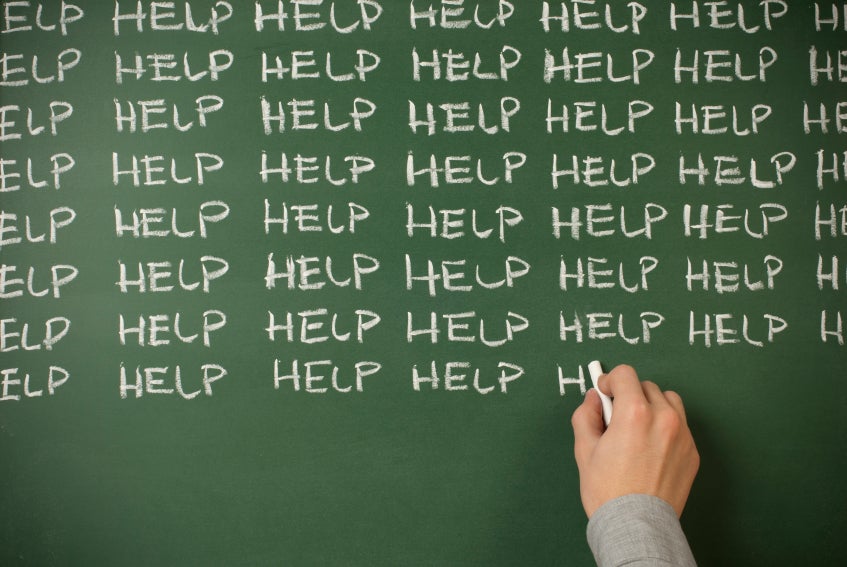
Texas Public Schools Are at a Tipping Point
The Texas Schooling Agency just lately unveiled university and district scores for the to start with time because 2019, and there has been some improvement, but a longstanding development persists. Quite a few faculties in the state’s poorest communities struggle to meet achievement targets.
This year, virtually 8,500 campuses were evaluated, and extra than 6,000 acquired either an “A” or a “B” for college student accomplishment results and advancement. But that is where the superior news ends. About 1,600 educational institutions gained a “C,” and additional than 550 educational institutions would have been rated as a “D” or an “F,” but the TEA opted to classify people educational facilities as “Not Rated.”
Right here is the trouble: Virtually 90{ac23b82de22bd478cde2a3afa9e55fd5f696f5668b46466ac4c8be2ee1b69550} of universities not rated are in the state’s poorest communities. None is in the most affluent communities.
Persistently struggling universities signify a many years-long issue that demonstrates two policy failures: the failure to adequately fund educational institutions in poorer communities, and the failure to generate a trainer workforce to fill every single faculty with seasoned, large-quality instructors. If the state were rated for addressing these two failures, Texas would be rated “F” relative to other states. Texas ought to do better.
The state’s antiquated finance technique ranks among the the base 5 for providing adequate methods to high-poverty school districts. Despite many situations reaching the Supreme Court docket of Texas, which include several rulings in favor of plaintiff university districts, our lawmakers have never ever made a process that puts all college students on equal footing.
In 2019, Dwelling Invoice 3 provided $6.5 billion in added instruction shelling out. Because then, the state has failed to make ongoing initiatives to increase faculty funding. The state’s intricate recapture technique takes money out of some significant-poverty college districts such as those people in Houston, Dallas and Austin, wherever many persistently battling schools function. Federal funds aided districts invest in capital initiatives, mastering interventions, and right after-faculty neighborhood-based mostly programs. Sad to say, these resources are drying up, and districts will before long have to have state funding to keep on their COVID recovery.
Texas is also struggling to recruit and prepare enough college-educated instructors, which could be because of to the state’s significant “teacher wage penalty,” which is nearly 22{ac23b82de22bd478cde2a3afa9e55fd5f696f5668b46466ac4c8be2ee1b69550}. This penalty implies how teachers’ salaries review with their college graduate peers in the non-instructing sector. Reduced salaries disproportionality have an effect on significant-poverty campuses that routinely battle to recruit and keep academics.
Higher-poverty districts are far more most likely to employ inexperienced and alternatively licensed lecturers. A new research working with information found that Texas learners been given an more 2.2 and 2.4 months of discovering in ninth grade English language arts and math when taught by college-accredited instructors relatively than alternatively licensed lecturers. The review also discovered alternatively licensed instructors exited their work sooner, which destabilized campuses and enhanced expenditures necessary to exchange and retrain lecturers.
Distinctive instruction is an area that highlights the state’s many years-extensive failure to adequately fund instruction and make sure high-quality teachers are readily available. The state has been investigated and cited for violating federal legal guidelines for cutting distinctive education and learning funding even though at the same time reporting a distinctive schooling teacher shortage for far more than 20 several years.
All of this combined should really make Texans ask why condition leaders have not tackled specific training, college finance and trainer high quality concerns supplied the scope of the challenge. Fairly, a lot of condition leaders have focused on fighting culture wars – enacting policies to limit teaching on race and LGBTQ bathroom bills.
The state’s broader failures in rural communities have also contributed to a sense amid quite a few instructors that faculties are unsafe. The outcomes of these coverage failures may well push even much more lecturers out of school rooms, particularly in the greatest-need colleges, only incorporating to an by now negative dilemma.
Texans can’t acknowledge this. Correcting the state’s process of college finance and improving the offer of high-high quality instructors will not be simple and will involve significant investments. The impending elections and 2023 legislative session deliver crucial opportunities to vote and advocate for change.
David DeMatthews is an associate professor in the Division of Educational Leadership and Coverage at The University of Texas at Austin.
David S. Knight is an assistant professor of education and learning finance and coverage at the College of Washington.
A model of this op-ed appeared in the San Antonio Convey News, Austin American-Statesman and the Waco Tribune Herald.
